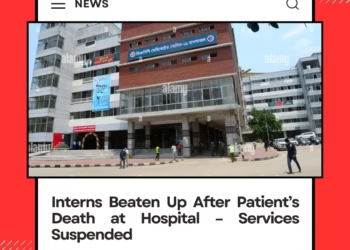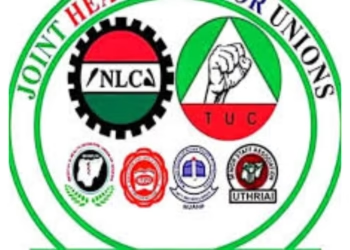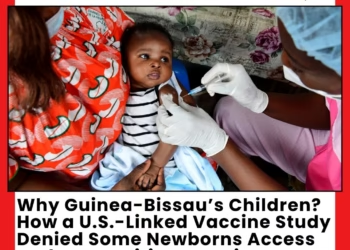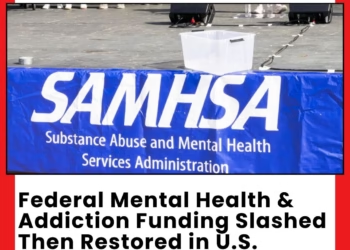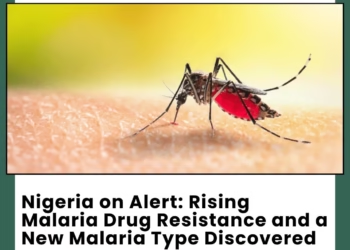Fellow Nurses Africa | Lagos, Nigeria | 26 August, 2025

NAFDAC Issues Urgent Alert Over Counterfeit Emergency Contraceptives Threatening Women’s Health
Fake Postinor-2 pills with spelling errors and potentially deadly ingredients infiltrate Nigerian market as regulatory body launches nationwide crackdown
The National Agency for Food and Drug Administration and Control (NAFDAC) has issued an urgent public health alert following the discovery of dangerous counterfeit batches of Postinor-2, Nigeria’s most widely used emergency contraceptive pill, circulating across the country.
The regulatory agency’s Public Alert No. 027/2025, released Monday, confirms that two distinct types of falsified Postinor-2 (Levonorgestrel 0.75mg) have infiltrated the pharmaceutical supply chain, posing significant risks to women’s reproductive health and potentially life-threatening complications.
Discovery Triggers Investigation
The alarm was first raised by the Society for Family Health (SFH), the marketing authorization holder for Postinor-2 in Nigeria, which alerted NAFDAC that certain batches in circulation were not imported by their company. This revelation prompted immediate regulatory action and a comprehensive investigation into the source of the counterfeit medications.
NAFDAC’s investigation revealed glaring quality control failures that distinguish the fake products from authentic ones. The counterfeit versions contain conspicuous spelling errors that serve as red flags for consumers and healthcare providers.
“The font size of the text on the pin verification sticker appears smaller and has a wrong spelling of the word ‘Veify’ instead of ‘Verify’ on the fake,” NAFDAC officials explained in the alert. Additionally, investigators discovered another telltale sign: the phrase “Distnibuted in Nigeria” printed on the back of counterfeit packages, instead of the correct “Distributed in Nigeria.”
Counterfeit Variants Identified
NAFDAC has catalogued two distinct counterfeit versions currently in circulation:
Type 1 Counterfeit: Batch T36184B, allegedly manufactured in August 2024 with an expiry date of August 2028, fraudulently bearing the legitimate registration number 04-6985.
Type 2 Counterfeit: Batch 332, purportedly manufactured in March 2023 with an expiry date of February 2027, also illegally using registration number 04-6985.
The authentic product is identified as batch T32458H, manufactured in February 2023 with a February 2027 expiry date and the genuine registration number 04-6985.
Health Risks and Medical Concerns
The presence of counterfeit emergency contraceptives in Nigeria’s pharmaceutical market raises serious public health concerns, particularly given the critical nature of emergency contraception where timing is essential for effectiveness.
Dr. [Name], a reproductive health specialist not involved in the investigation, explains the gravity of the situation: “Emergency contraceptives work within a narrow window of time. When women unknowingly take counterfeit versions with incorrect dosages or harmful ingredients, they face dual risks — potential contraceptive failure and exposure to toxic substances.”
NAFDAC’s risk assessment highlights multiple dangers associated with the falsified products:
- Contraceptive failure due to incorrect or insufficient active ingredients
- Toxic contamination from harmful substances used in illicit manufacturing
- Unpredictable adverse reactions from unknown chemical compounds
- Missed opportunities for genuine emergency contraception due to false confidence in ineffective products
- Long-term reproductive health consequences from exposure to substandard medications
The agency warns that counterfeit medicines are “unregulated, untested, and illegal, making their safety and efficacy impossible to guarantee.”
Regulatory Response and Enforcement
NAFDAC Director-General [Name] has mobilized a nationwide response to contain the spread of these dangerous counterfeits. All zonal directors and state coordinators have received direct orders to conduct surveillance operations and “mop up” the identified falsified products from their jurisdictions.
The enforcement operation represents one of the most comprehensive pharmaceutical safety initiatives undertaken by NAFDAC in recent years, reflecting the agency’s recognition of the severe public health threat posed by counterfeit reproductive health medications.
“This is not just about fake medicine,” a senior NAFDAC official, speaking on condition of anonymity, told this reporter. “When you compromise emergency contraception, you’re potentially altering the course of women’s lives. The stakes couldn’t be higher.”
Industry Impact and Supply Chain Security
The discovery of counterfeit Postinor-2 has sent shockwaves through Nigeria’s pharmaceutical industry, highlighting vulnerabilities in the drug supply chain that criminal networks have exploited.
Postinor-2, containing the hormone levonorgestrel, is among the most sought-after emergency contraceptives in Nigeria, making it an attractive target for counterfeiters seeking to exploit high demand and premium pricing.
Industry analysts suggest that the sophisticated nature of these counterfeits — including the use of legitimate registration numbers and professionally designed packaging — indicates well-organized criminal operations with significant resources and pharmaceutical knowledge.
Consumer Protection Measures
NAFDAC has issued comprehensive guidance for consumers and healthcare providers to protect against counterfeit medications:
For consumers:
- Purchase medications only from licensed pharmacies and verified healthcare providers
- Carefully examine PIN verification stickers for spelling accuracy and font consistency
- Report suspicious products immediately through NAFDAC’s hotline: 0800-162-3322
- Verify product authenticity through NAFDAC’s official verification systems
For healthcare providers:
- Exercise enhanced vigilance in pharmaceutical procurement
- Verify supplier credentials and authorization
- Conduct thorough physical inspections of all emergency contraceptives
- Report adverse events through NAFDAC’s e-reporting platforms
Global Implications
The counterfeit Postinor-2 case has attracted international attention, with NAFDAC confirming that details will be uploaded to the World Health Organization’s Global Surveillance and Monitoring System (GSMS). This step ensures global awareness and potentially prevents the spread of these dangerous counterfeits to other markets.
The WHO has identified counterfeit medicines as a growing global threat, with developing countries particularly vulnerable due to weaker regulatory frameworks and limited enforcement capabilities.
Ongoing Investigation
While NAFDAC continues investigating the source of the counterfeit products, the agency faces the challenging task of tracing complex supply chains that may involve multiple countries and criminal networks.
Pharmaceutical security experts suggest that the investigation may reveal broader vulnerabilities in Nigeria’s drug importation and distribution systems, potentially leading to enhanced regulatory measures and stricter enforcement protocols.
Public Health Response
The Nigerian Association of Pharmacists has pledged full cooperation with NAFDAC’s enforcement efforts, with local chapters conducting voluntary audits of emergency contraceptive inventories.
Women’s health advocacy groups have praised NAFDAC’s swift response while calling for stronger pharmaceutical security measures to prevent future incidents.
“This alert could save lives,” said [Name], director of [Organization], a reproductive rights advocacy group. “But it also highlights the urgent need for better protection of our pharmaceutical supply chain, particularly for medications that women depend on in critical moments.”
Moving Forward
As investigations continue, NAFDAC’s response to the counterfeit Postinor-2 crisis may serve as a template for addressing future pharmaceutical security threats in Nigeria and across West Africa.
The agency has promised regular updates on the investigation and urged continued vigilance from all stakeholders in Nigeria’s healthcare system.
For immediate reporting of suspected counterfeit medicines, consumers and healthcare providers can contact NAFDAC at sf.alert@nafdac.gov.ng or through the Med-Safety mobile application available on Android and iOS platforms.
The investigation continues as NAFDAC works to ensure the integrity of Nigeria’s pharmaceutical supply and protect public health from the growing threat of counterfeit medications.
This report is based on official NAFDAC alerts and public health advisories. For updates on this developing story, visit fellownurses.com.
Fellow Nurses Africa is the independent voice of African nurses. We educate, inform and support the nursing profession.



